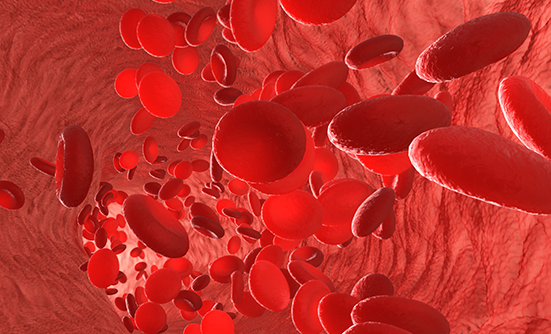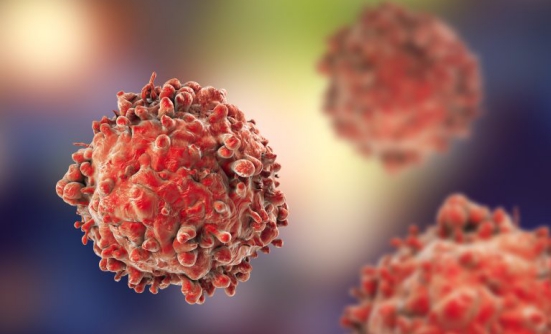Multiple myeloma is a type of blood cancer; the cause of this cancer is not yet known. Although it is not considered a hereditary cancer and does not run in families, many genetic factors, especially genetic alterations (mutations) and chromosome abnormalities, play a role in multiple myeloma, as in many other cancers. Myeloma cells are known as plasma cells, are found in the bone marrow, and have a role in the body’s immune system. Multiple myeloma often affects the patient’s immune system by reducing the body’s ability to fight disease.
Genetic Factors
According to Sagar Lonial, MD, and Ajay K. Nooka, MD, MPH, 2 multiple myeloma experts, the fact that patients respond to therapy differently indicates that, as in most cancers, there are many genetic factors that are involved in multiple myeloma. According to these experts, “there are many subsets of patients with myeloma with different biologic drivers as well as different patient-specific characteristics that can influence treatment.”1
Because genetic changes in patients with multiple myeloma (and in other types of cancer) can affect the body’s response to therapy, understanding the specific genetic factors related to multiple myeloma is important, because it can help to select the best therapy or combination of drugs for a particular patient.
In fact, Dr. Lonial and Dr. Nooka suggest that the genetic evaluation of a patient with multiple myeloma should be done at the time of diagnosis to identify potential genetic influences and alterations that could be involved in the disease, which could help determine the specific course of therapy for the patient among the many available treatment options.1
These experts also say that the pattern of a patient’s genetic mutations may predict how long the disease will remain in remission. Furthermore, they note that although many patients with this disease survive up to 5 years, some patients with multiple myeloma can live many years, and approximately 10% to 15% of patients are actually cured, which may also be related to their genetic profile.1
Chromosome Abnormalities
Abnormalities in the number of chromosomes or in the structure of chromosomes have also been linked to multiple myeloma. Chromosomes are structures that contain DNA and are found in our cells. Normally, people have 46 chromosomes; however, sometimes a part of a chromosome or the full chromosome is missing (or deleted). Approximately 50% of patients with multiple myeloma have been linked to the deletion of chromosome 13,2 which makes the disease more difficult to treat.
Deletions in chromosome 17p are less common and are found in a minority of patients with multiple myeloma. However, the p53 gene is located on chromosome 17p, and therefore a deletion in the 17p chromosome results in a p53 mutation. This mutation is associated with an aggressive course of multiple myeloma, leading to poor results. Therefore, patients with a 17p deletion are considered high risk and require therapy for a longer period of time, and with different drug combinations.
Sometimes, a part of one chromosome switches with a part of another chromosome, which is called a “translocation” mutation. Up to 40% of patients with multiple myeloma have translocation mutations.2 In some instances, this mutation can activate a type of gene known as an “oncogene,” which is a gene that stimulates the growth of cancer cells. Similar to the 17p deletion, patients with some translocation mutations require longer maintenance therapy with multiple drugs.
Genetic Testing
New molecular tests are gradually becoming available today that can improve the recognition of genetic aspects of the disease and can identify genetic factors in patients with multiple myeloma. The ultimate goal of genetic testing in multiple myeloma is to identify the direction and length of therapy, and which therapies will provide the most benefit to the specific patient.
Karyotyping and FISH are 2 types of tests used to identify chromosome changes. Karyotyping uses a patient’s bone marrow sample to detect chromosome abnormalities. Overall, FISH is a more informative method for identifying changes in chromosomes. However, a new test may soon replace these older tools.
In 2015, a new genetic test called MyPRS was approved by the FDA for patients with multiple myeloma. The test measures the patient’s levels of 70 genes that may be associated with multiple myeloma.2 The MyPRS test evaluates the patient’s risk for the recurrence (return) of cancer, based on their specific gene expression.2
This test is new and is not yet used by doctors. However, according to the Multiple Myeloma Research Foundation, “most experts agree that because the test provides such important information about relapse, it should be done at the time of diagnosis.”2
Patients are therefore advised to ask their doctor about genetic testing, and specifically about MyPRS, to find out about their specific gene-expression profile. It will help to determine the risk level of the patient and will aid in deciding on the direction of treatment, especially long-term (maintenance) treatment.
References
- Lonial S, Nooka AK. Myeloma is not a single disease. Journal of Oncology Practice. 2016; 12(4):287-292.
- Multiple Myeloma Research Foundation. Multiple myeloma genetic factors. www.themmrf.org/multiple-myeloma-/multiple-myeloma-causes/myeloma-risk-factors. Accessed July 30, 2016.
Patient Resources
Multiple Myeloma Research Foundation
www.themmrf.org/multiple-myeloma/multiple-myeloma-causes
American Cancer Society
www.cancer.org/cancer/multiplemyeloma/detailedguide/multiple-myeloma-what-causes
Mayo Clinic
www.mayoclinic.org/diseases-conditions/multiple-myeloma/basics/tests-diagnosis/con-20026607















